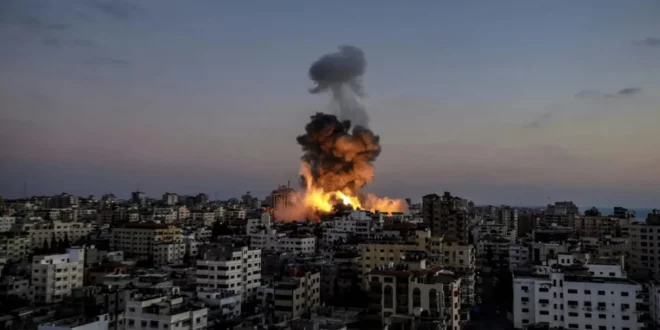The agreement between Israel and Hamas announced last week is good news, but it represents only a modest step towards resolving the manifold problems caused by the war in the Gaza Strip. Limited or not, the deal is valuable in its own terms, assuming it holds. Under its terms, the remaining Israeli hostages will be set free, there will be a partial withdrawal of Israeli troops, and humanitarian aid will be allowed to get to people in need in Gaza without interference by Israeli forces.
After two years of a war that has killed tens of thousands of Palestinians in Gaza, the agreement will save lives, plain and simple. But it leaves the biggest problems to be dealt with at some indeterminate point down the road.
For example, will any of the leaders who directed or enabled Israel’s mass slaughter, which many independent experts have defined as a genocide, be held accountable? If not, where is the incentive to keep leaders from repeating a variation of this very behavior? After all, it was Israel’s fifth war on the Strip since late 2008.
There are also major territorial issues. Who will have political control of Gaza? What has the brutality of the war done to the prospects of a two-state solution, or any solution, to the underlying conflict between Israel and the Palestinian people? And what will become of the occupied West Bank, where the Israeli government’s ongoing settlement construction has dissected the territory into increasingly small and fragmented Palestinian enclaves?
What about reconstruction in Gaza? A key question that has not been confronted head on is whether the pile of toxic rubble that Israeli bombing has produced in Gaza can be made safe for resettlement. Another unanswered question is where the Palestinians displaced by the war — some 90% of the Strip’s population — will be accommodated, and who will pay for their care.
“Will any of the leaders who directed or enabled Israel’s mass slaughter, which many independent experts have defined as a genocide, be held accountable?”The biggest question of all may be whether Israeli Prime Minister Benjamin Netanyahu’s government will abide by the deal, when it has broken rules and laws with virtual impunity over the past two years. Netanyahu’s already fragile coalition is now facing growing dissent from far-right parties that view the deal as capitulation. In addition, with the war in Gaza taking up fewer Israeli military resources, it is not clear whether the Netanyahu government will be more or less likely to continue its escalation in the wider region, especially its targeting of Iran.
So, the new deal is a good development, but it by no means guarantees that the harder tasks needed to produce an enduring peace will be seriously undertaken by the leaders driving this process, including US President Donald Trump.
The celebratory rhetoric regarding President Trump’s role in the deal is out of proportion to the scale of the deal and the huge unanswered questions outlined above. Yet a Politico newsletter, while citing the claim by the president and his allies that the deal marks a triumph of a policy of “peace through strength,” referred to it as “Trump’s towering achievement.”
In fact, while this deal is welcome, a similar agreement could have been reached much sooner, and tens of thousands of lives could have been saved, if the Biden or Trump administrations had threatened to cut off the US financing, weaponry, and spare parts that fueled the Israeli war effort near the beginning of the conflict instead of two years in.
A joint Quincy Institute/Brown Costs of War paper released yesterday underscored these points, demonstrating in detail that Israel’s military could not have waged the Gaza war as intensely as it did, or made air strikes throughout the region, without US support, including $21.7 billion in military aid since the deadly Hamas-led attack on Oct. 7, 2023.
A parallel paper by Linda Bilmes of the Kennedy School at Harvard found another $9 to $12 billion in expenditures on military operations in the region provoked by other nations’ reactions to Israel’s leveling of Gaza. The final two papers, by Neta Crawford and David Vine, found that one-tenth of the population of Gaza had been killed or wounded in the war, and that the Gaza conflict and its ripple effects produced more than five million refugees in the region. The negative ramifications for the global reputation of the United States and the instability caused by the Gaza conflict will have harmful consequences for years to come.
The question now is whether President Trump and others who helped craft the current deal will persevere past this beginning phase and tackle the larger strategic, economic, and political problems that left an opening for terrible outcomes like the Gaza war. Anyone who hopes not to see another conflict like this will need to push hard to get them to finish the job. They cannot be allowed to just take a bow and then move onto something else.
 Eurasia Press & News
Eurasia Press & News




